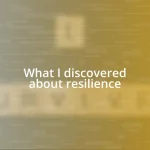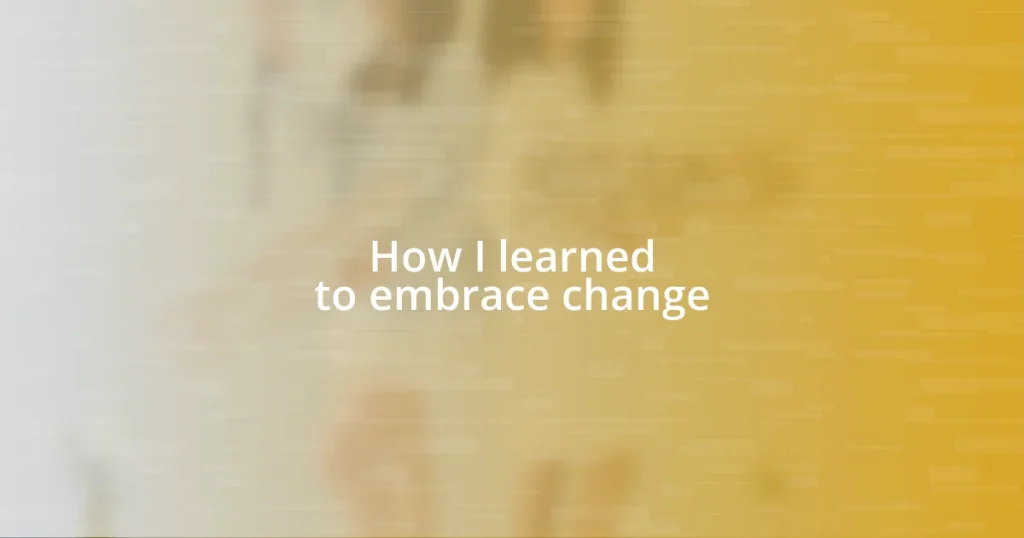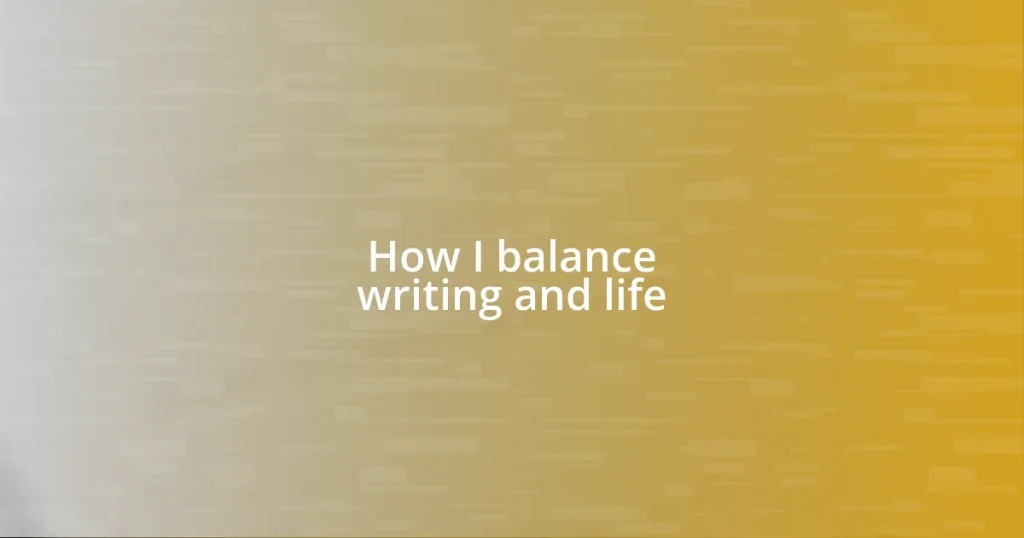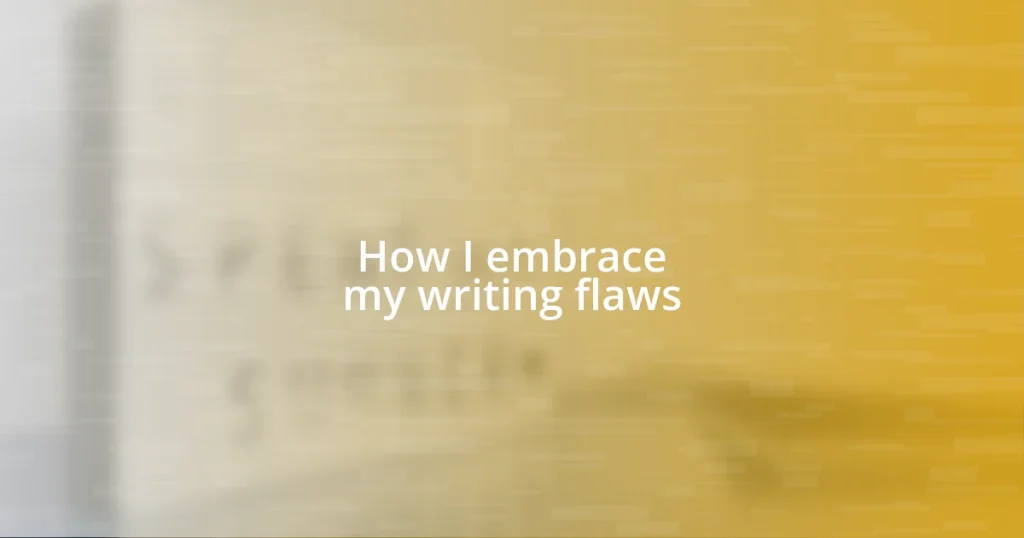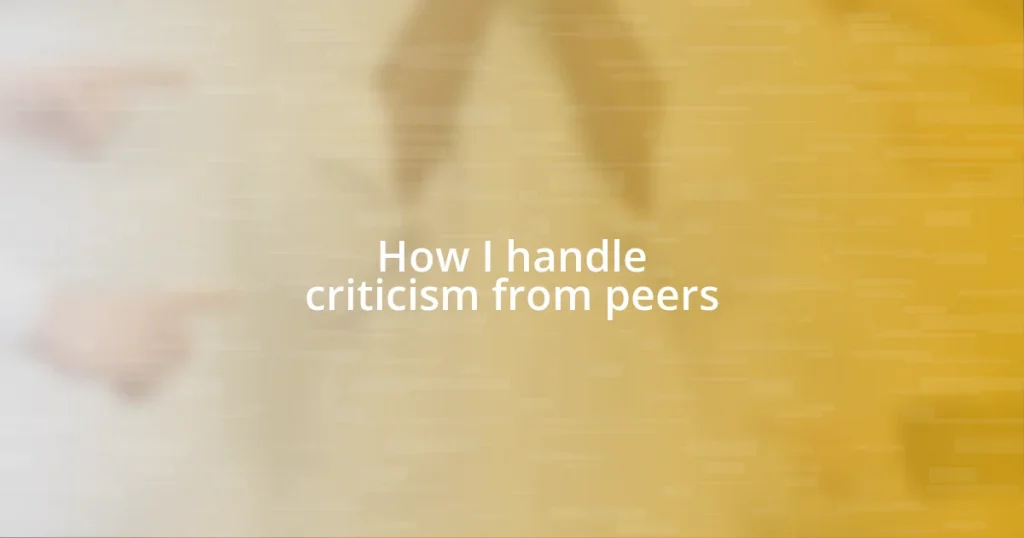Key takeaways:
- Change can be a catalyst for personal growth, challenging us to let go of fears and adapt to new circumstances.
- Recognizing and confronting personal resistance to change is crucial for opening up new possibilities and enriching life experiences.
- Celebrating small wins fosters a positive mindset and builds momentum during transitions, reinforcing the journey of adaptation.
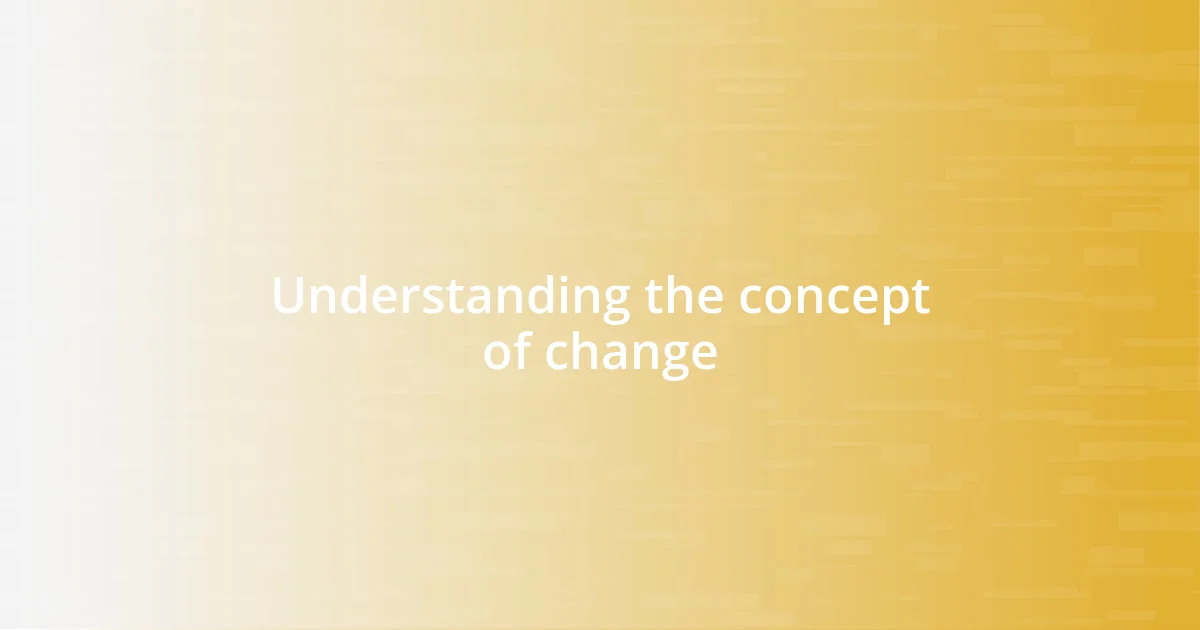
Understanding the concept of change
Change is often seen as daunting because it disrupts our routines and challenges our sense of stability. I remember when I got a new job, I felt anxious about leaving my comfort zone. This experience made me realize that change can be a catalyst for growth, even when it feels uncomfortable initially.
In my experience, understanding change is about recognizing its inevitable nature. For instance, I once faced a significant shift when a close friend moved away. Initially, I felt a deep sense of loss, but as time went on, I learned to appreciate the new opportunities that came with that change, such as meeting new people and broadening my horizons. Isn’t it fascinating how something that feels like an end can also be a beginning?
Change is not just an external phenomenon; it’s deeply personal. I often find myself reflecting on how my own perspectives have shifted over the years. Why do we resist change so fiercely? From my journey, I’ve learned that embracing change means letting go of our fears and accepting that adaptation is key to moving forward in life.
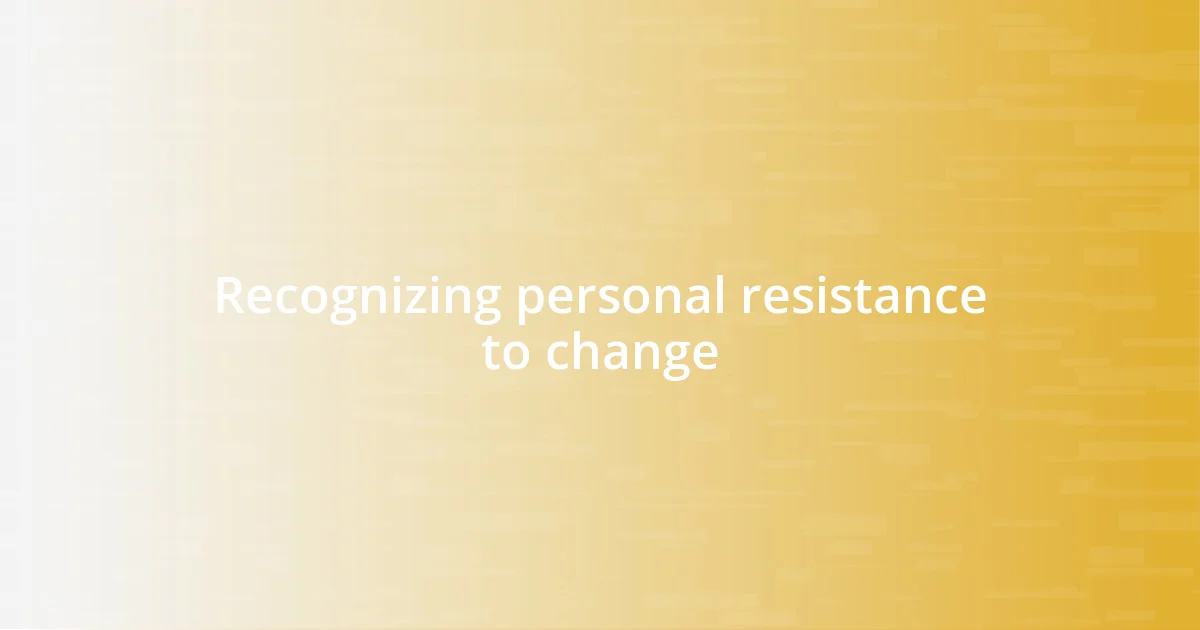
Recognizing personal resistance to change
Recognizing personal resistance to change can feel like an uncomfortable mirror reflecting our deepest fears. I vividly recall when I was presented with an opportunity to relocate for a job—my heart raced at the thought. The thought of leaving familiar places and people was overwhelming, and I caught myself clinging to the predictable routine of my daily life. It made me realize that my resistance was rooted in fear of the unknown, a common instinct many share.
As I delved deeper into understanding my resistance, I noticed how it manifested in subtle ways. For instance, I would often procrastinate on making decisions about my career because it felt safer to stay put. Such avoidance temporarily shielded me from discomfort, but it ultimately hindered my growth. Identifying these patterns became a transformative step for me, highlighting that recognizing resistance is the first step toward embracing change.
Reflecting on these experiences, I’ve also come to appreciate how resistance often thrives in our comfort zones. I remember an instance when I hesitated to accept a friendship from someone vastly different from me. My initial reaction was to maintain the status quo, fearing that new connections could disrupt my closely-knit circle. However, embracing the change of deepening that friendship led to enriching perspectives that I now treasure dearly. In this journey of awareness, I’ve learned that acknowledging my resistance is not just about confronting anxiety—it’s about opening doors to newfound possibilities.
| Indicators of Resistance | Personal Experience |
|---|---|
| Fear of the Unknown | Relocated for a job, felt anxiety about leaving my comfort zone. |
| Procrastination in Decision Making | Delayed career decisions as a way to avoid discomfort. |
| Preference for Familiar Relationships | Initially resisted a new friendship, but it enriched my life. |
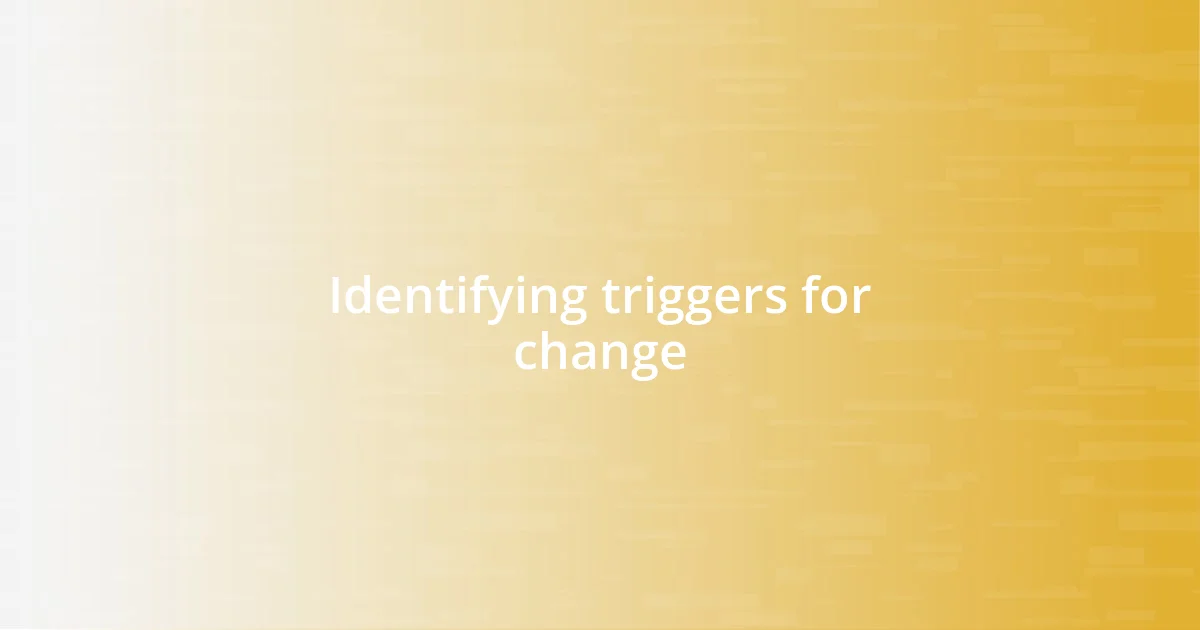
Identifying triggers for change
Identifying triggers for change is essential in understanding how we react to it. For me, one significant trigger often lies in moments of discomfort. I recall a time when I was unexpectedly assigned a leadership role in a group project. Initially, I cringed at the thought, overwhelmed by the responsibility. Yet, that discomfort opened a new chapter for me, allowing latent skills to surface and challenging my perceptions of what I was capable of achieving.
It’s important to pinpoint what specifically sets off these feelings. Here are some common triggers that I’ve recognized in my own journey:
- New Responsibilities: Being promoted or taking on new roles can prompt anxiety but also growth.
- Changing Environments: A relocation, whether for work or personal reasons, forces adaptation and stimulates change.
- Personal Relationships: Shifts in relationships, like a breakup or the ending of a friendship, can be jarring yet pave the way for self-discovery.
- Health Challenges: Sudden changes in health can force us to reevaluate our lives and make necessary adjustments.
- External Events: Global occurrences, such as economic downturns or pandemics, can thrust change upon us unexpectedly.
Recognizing the specific situations that amplify these feelings has been transformative for me. Often, it’s in these triggers that we find the most significant opportunities for personal development and growth. By embracing and not shying away from them, I’ve learned that change doesn’t only come from external demands; it’s often a call to deeply reexamine ourselves and our paths.
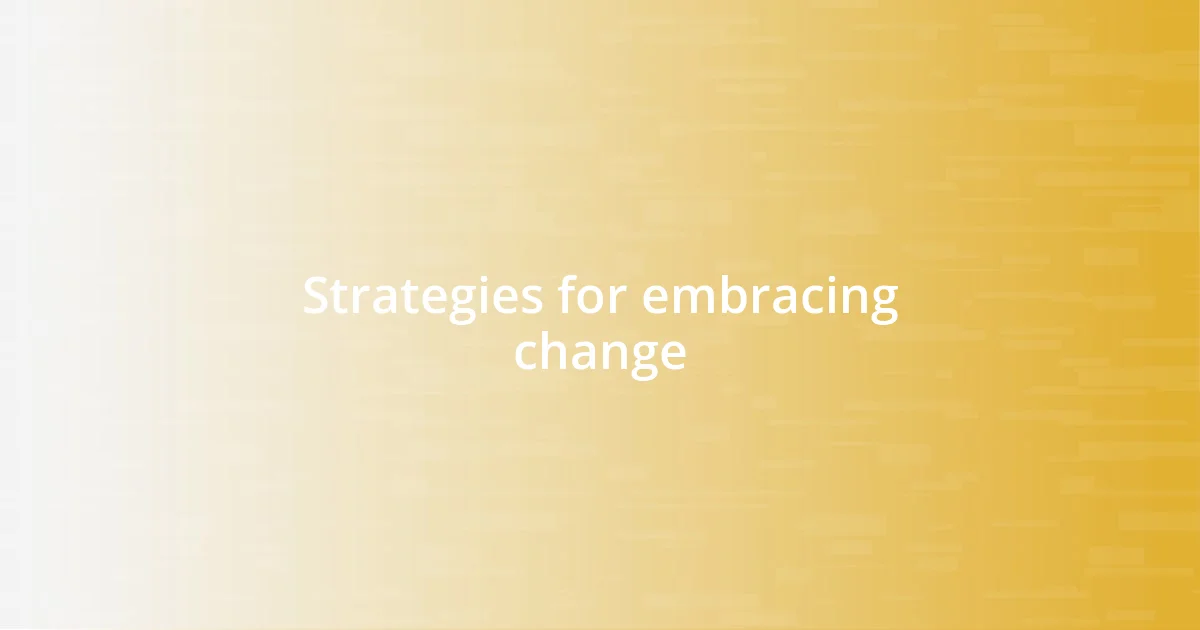
Strategies for embracing change
When faced with change, I’ve found that setting small, achievable goals can be incredibly helpful. For example, during a major transition in my professional life, I decided to focus on one new task each week rather than trying to overhaul everything at once. This incremental approach eased my anxiety and built my confidence as I began to see progress, reminding me that growth often happens in stages, not all at once.
Another strategy that’s worked wonders for me is cultivating a positive mindset around change. I remember a time when my team faced a sudden project pivot—initially, I felt overwhelmed. However, I actively chose to see it as an exciting challenge rather than an obstacle. This shift in perspective allowed my creativity to flourish, ultimately leading to an innovative solution we hadn’t considered before. Have you ever noticed how a little mindset shift can make a world of difference? Embracing change as an opportunity rather than a setback has been transformative in my journey.
Lastly, surrounding myself with supportive individuals has made an enormous impact. I can recall once when I was struggling with a significant life change, and a friend offered their unwavering support, sharing their experiences in a similar situation. Their perspective reminded me that I wasn’t alone and that others had thrived through change. I truly believe that fostering connections helps us not only to weather the storms of change but also to find encouragement and motivation from those we trust. Who are the people in your life that uplift you during such times? Engaging with them may provide the reassurance you need to embrace any change that comes your way.
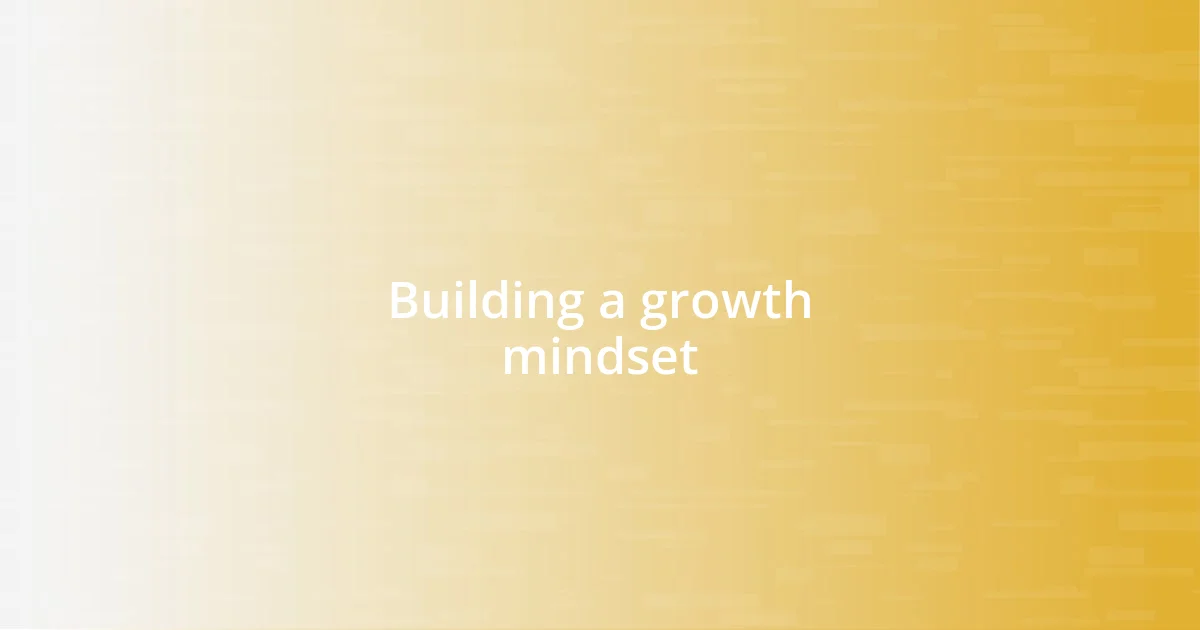
Building a growth mindset
Building a growth mindset has been a game changer for me, especially when confronting change. I recall a period in my life when I was hesitant to take on a new project because I felt unqualified. At that moment, I decided to shift my approach and embrace the possibility of learning rather than focusing solely on the fear of failure. Looking back, that decision not only allowed me to succeed, but it also taught me that each challenge is actually a chance to grow.
One technique I’ve adopted is the practice of self-reflection after each change or challenge I encounter. This might sound tedious, but taking a moment to jot down what I learned has helped solidify my experiences. For instance, after struggling with a difficult class in college, I wrote about how the struggle taught me resilience and the importance of seeking help when needed. These reflections allowed me to see patterns in my growth, reinforcing the belief that challenges are temporary stepping stones.
Have you ever felt overwhelmed by the pace of change around you? I certainly have, and those moments of doubt can be daunting. During one such phase, I made a list of my strengths and past successes, which reminded me that my abilities had evolved over time. Embracing my journey and celebrating small victories helped me cultivate a growth mindset; this way, instead of fearing change, I became excited about the new possibilities it brought.
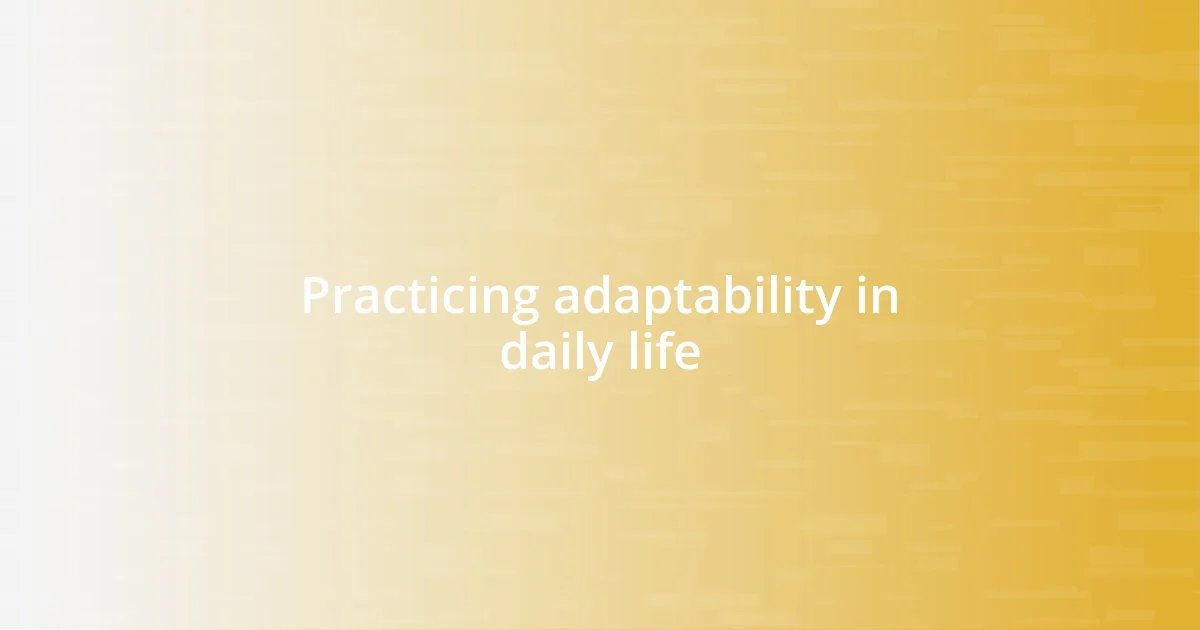
Practicing adaptability in daily life
Practicing adaptability in daily life often begins with shifting my daily routines in small yet significant ways. Recently, I decided to take a different route to work—on a whim, really. It was a minor change, but it introduced new sights and experiences, which not only made the commute enjoyable but also prompted me to reflect more on my surroundings. Have you ever noticed how a simple change in routine can shake up your perspective?
Another way I’ve embraced adaptability is by leaving room for improvisation in my plans. I remember organizing an event where everything was meticulously planned, but then the venue had to change last minute. Initially, I felt a wave of frustration, but then I reminded myself that flexibility is key. By embracing the unexpected, I found creative solutions that made the event even better than I had originally envisioned. How often do we cling to plans that may no longer serve us?
In addition, I engage in regular mindfulness practices that help anchor me in the present moment. On days when adaptability feels especially challenging, I take a few minutes to breathe and center myself. I vividly recall a hectic week where everything seemed to be in flux. Instead of spiraling into stress, I paused, closed my eyes, and focused on my breath. That simple act of grounding allowed me to approach change with clarity rather than chaos. Isn’t it empowering to discover that such moments of stillness can create a ripple effect of adaptability in our everyday lives?
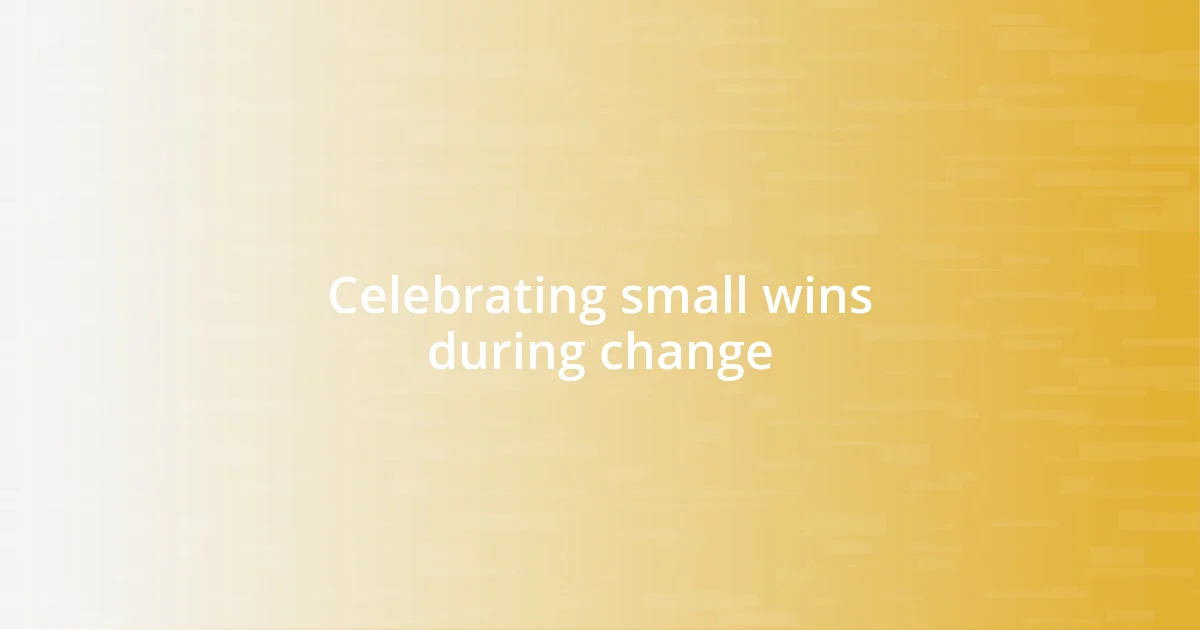
Celebrating small wins during change
Celebrating small wins during change has been an eye-opener for me. I remember a time when I started a new fitness regimen after years of neglecting my health. Instead of focusing on the end goal, which felt daunting, I celebrated each workout completed and every healthy meal cooked. This not only made the journey enjoyable but also built momentum, reminding me that progress is often about those little victories.
One evening, while reflecting on my progress, I realized that each small win was like a building block toward greater transformation. There was a day when I managed to wake up early enough to meditate before work. I felt an overwhelming sense of accomplishment, even though it was just a single morning. Have you ever experienced that rush of joy from doing something simple yet significant? These moments of success, however small, reinforce my commitment to adapting to change with a positive mindset.
I’ve also learned to share my small victories with friends and family, which amplifies their impact. For instance, after completing a tough project at work, I shared my feelings of achievement with my peers. Their encouragement created a warm atmosphere of support and motivation as we all celebrated together. Don’t you think that sharing success not only uplifts us but also inspires others? Each small win becomes a part of a broader narrative of growth, and I’m learning to embrace every step of that journey.








